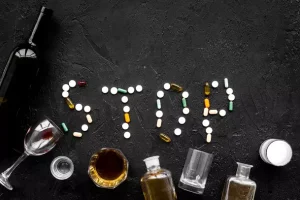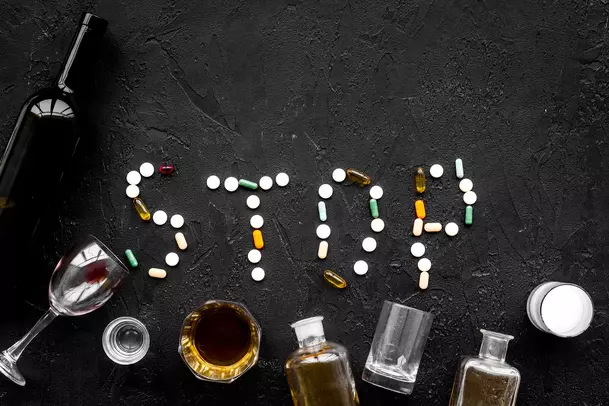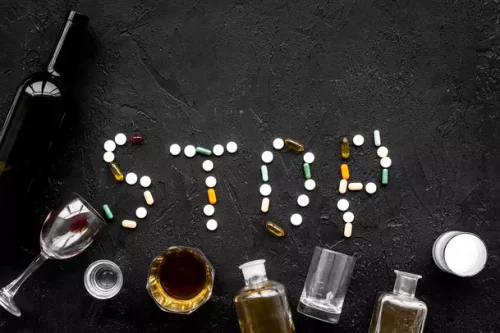
Alcohol dependence refers to being unable to stop drinking without experiencing symptoms of withdrawal. People often continue drinking to alleviate these unpleasant symptoms. How alcohol misuse is treated depends on how much alcohol a person is drinking. As well as the NHS, there are a number of charities and support groups across the UK that provide support and advice for people with an alcohol misuse problem. This often leads to «relief drinking» to avoid withdrawal symptoms.
- Below, we cover the warning signs of AUD and how healthcare professionals diagnose it.
- For example, antidepressants, if someone with an alcohol addiction were self-medicating to treat their depression.
- While the two are no longer differentiated in the DSM, understanding their original definitions can still be helpful.
- More direct evidence supporting increased alcohol consumption as a consequence of repeated withdrawal experience comes from animal studies linking dependence models with self-administration procedures.
- These findings have clear clinical relevance from a treatment perspective.
Short term

Experts have tried to pinpoint factors like genetics, sex, race, or socioeconomics that may predispose someone to alcohol addiction. Psychological, genetic, and behavioral factors can all contribute to having the disease. Many people with AUD do recover, but setbacks are common among people in treatment. Behavioral therapies can help people develop skills to avoid and overcome triggers, such as stress, that might lead to drinking. Medications also can help deter drinking during times when individuals may be at greater risk of a return to drinking (e.g., divorce, death of a family member). Health care professionals use criteria from the Diagnostic and Statistical Manual of Mental Disorders, Fifth Edition (DSM-5), to assess whether a person has AUD and https://ecosoberhouse.com/ to determine the severity, if the disorder is present.
- A doctor may also prescribe medications to help you manage withdrawal symptoms and support you in your effort to stop drinking.
- Alcohol abuse can come with many health complications and can lead to AUD if left untreated.
- You may start to feel sick from heavy drinking, but enjoy its effects too much to care.
- If you find that drinking is negatively impacting multiple areas, it may be time to consider making changes or seeking professional help.
- Too much alcohol affects your speech, muscle coordination and vital centers of your brain.
- More resources for a variety of healthcare professionals can be found in the Additional Links for Patient Care.
What are the symptoms of alcoholism?

Alcohol withdrawal syndrome is a set of symptoms that occur when someone who is physically dependent upon alcohol suddenly stops drinking or drastically reduces their alcohol intake. If you have alcohol use disorder and want help, a healthcare provider can guide you to resources and rehabilitation programs to help you quit. Know that your provider will be there to support you, not to judge you. Your healthcare provider will recommend and encourage treatment for alcohol use disorder. You may need a medically supervised alcohol detox if you are physically dependent on alcohol.
- Alcohol cravings are intense urges to drink that can be triggered by various factors, including stress, environmental cues, or emotional states.
- Being dependent on alcohol can also affect your relationships with your partner, family and friends, or affect your work and cause financial problems.
- When you drink too much, your liver has a harder time filtering the alcohol and other toxins from your bloodstream.
- This self-assessment guide provides a framework for understanding your consumption patterns and their effects on your life.
- It’s important that each person get involved in a recovery program that will support long-term sobriety.
Building a Support System for Long-Term Success
- Alcohol withdrawal causes a range of symptoms when a person with alcohol use disorder stops or significantly decreases their alcohol intake.
- Examples of behavioral treatments are brief interventions and reinforcement approaches, treatments that build motivation and teach skills for coping and preventing a return to drinking, and mindfulness-based therapies.
- Also, a healthy diet can help undo damage alcohol may have done to the person’s health, like weight gain or loss.
- By being aware of these subtle signs, individuals can better assess their own relationship with alcohol or recognize potential issues in loved ones.
This could mean an emphasis on therapy for someone who is depressed, or inpatient treatment for someone with severe withdrawal symptoms. Alcohol dependence was originally defined as a chronic medical condition characterized by experiencing symptoms of signs and symptoms of alcohol dependence withdrawal when the person stops consuming alcohol. To avoid experiencing withdrawal symptoms, the person has to keep consuming alcohol. Alcohol dependence is characterized by symptoms of withdrawal when a person tries to quit drinking. Drinking to excess but not being physically dependent is called alcohol abuse. While only a healthcare provider can diagnose an alcohol use disorder, there are several physical and behavioral signs that may indicate an individual struggles with their alcohol use.

Recognizing Problematic Drinking Habits: A Self-Assessment Guide
They can also help you manage any symptoms of alcohol withdrawal you experience when you stop drinking. While alcohol can temporarily alleviate symptoms of anxiety or depression, it often masks underlying mental health issues rather than resolving them. Over time, alcohol use can exacerbate these conditions or even trigger new mental health problems. If you think you may be dependent on alcohol, you should consult your doctor or another medical professional before stopping drinking.

The American Medical Association recommends a two-drink daily limit for people assigned male at birth (AMAB). Heavy drinking in this population is five or more drinks in one day or 15 or more drinks in a week. People assigned female at birth (AFAB) should limit drinking to one drink a day. Heavy drinking in this population is four or more drinks a day or eight drinks a week. If you’re worried that you might have alcohol use disorder, don’t try to quit cold turkey on your own.

